Fatuma grew up surrounded by farms and mountains. In her small rural town of Gursum in Eastern Ethiopia, agriculture is the only source of income for families like hers. Tragically, Fatuma’s geographic isolation was also the cause of her obstetric fistula injury. Through the Hamlin Model of Care, Fatuma was able to undergo fistula repair surgery at Hamlin’s Harar Fistula Hospital and fully recover from her injuries, with a fresh, new start on life.
Growing up in Gursum
The village of Gursum, where Fatuma lives, is nestled in the mountains of East Hararghe. Fatuma, her brothers and sisters, would have to walk some distance to reach the closest school and medical clinic. Despite these challenges, Fatuma was fortunate enough to start school – a right denied to far too many girls in Ethiopia. After falling in love and getting married, aged 17, Fatuma left school and started a new chapter of her life. A year ago she became pregnant and her family was filled with happiness and anticipation for the future.
Fatuma’s husband was very supportive of her, encouraging her to visit the nearby government health clinic three times during her pregnancy. “We normally do not visit health facilities during pregnancy, and most women in my village deliver their babies at home. My brothers and sister, and I, were born at home. In the case of my pregnancy, my husband insisted that I visit the clinic, and convinced everyone [in the village] to deliver at the nearby government clinic,” recalls Fatuma.
The tragedy of fistula
At each of her three government clinic check-ups, Fatuma was assured by nurses that everything was going to plan. However, once her labor began, things did not go to plan at all. “When the day approached, I accidentally felt the labor and stayed at home. In the end, I was assisted by my mom and the village’s traditional birth attendant,” says Fatuma. The traditional birth attendant and her mother were unable to recognize that Fatuma was experiencing an obstructed labor; as a result, Fatuma remained in painful labor for two long days.
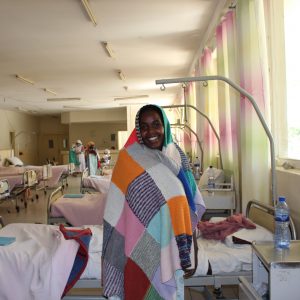
After two days, Fatuma was taken on a handmade stretcher to the nearest medical clinic. By the time she arrived at the clinic, the nurses noticed the complications in her labor and hurried to drive her to the closest government hospital for more appropriate help. The doctors saved Fatuma’s life but could not prevent her from suffering a tragedy. Fatuma’s husband and father were outside, excitedly awaiting the baby’s arrival with happiness and hope. Tragically, Fatuma was inside, suffering a fistula injury and losing her baby at the same time.
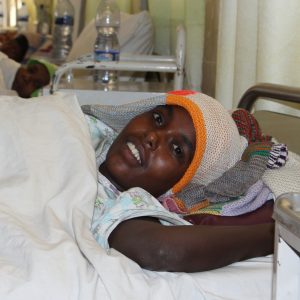
Fatuma and her family had never heard of fistula before. “First I thought it was the aftermath of the childbirth and hoped it would stop sooner but when I learned that the incontinence continued, I was frustrated and felt ashamed of myself. The doctors gave me a referral to visit the Hamlin fistula hospital after three months. I was worried how I would stay in such a condition for three months, but the entire family especially my father and husband stayed by my side and comforted me all the way,” reflects Fatuma.
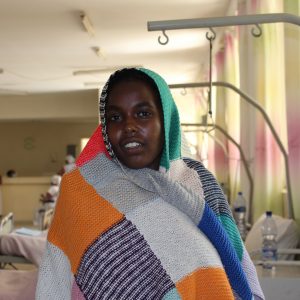
A new start after surgery
In mid-October 2020, Fatuma, her husband and her father, went to Hamlin’s Harar Fistula Hospital for fistula repair treatment. The medical team at the hospital warmly welcomed Fatuma and assured the family that she was in the safest hands. It was only once she had arrived at the hospital, that Fatuma could hope for a new start. “The first day I arrived at Hamlin, and met so many women like me, I began hoping for a cure. Day by day, I started noticing the extraordinary care and love that the staff provided us. I was amazed. I was calling my dad and husband every night, telling them how I am happy and hopeful,” Fatuma explains.
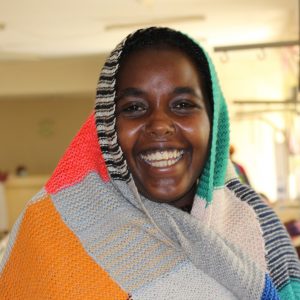
The staff at Hamlin’s Harar Fistula Hospital prepared Fatuma for surgery. After three weeks of pre-operative care, Fatuma successfully underwent a fistula repair surgery. She stayed for a further fortnight with a catheter. Today, Fatuma is totally dry and has been discharged back home. “When I told the happy news of being cured, the first person I called was my father and then my husband, they both were happy and thanked the hospital from their hearts. In the two months that I stayed here, Hamlin has fed my good meals, taught me basic skills, given me physical exercise to strengthen my body and most of all, cured me from a debilitating injury. Surprisingly, all these services were free of charge. This is a generosity that I could not even get from my beloved ones. Thank you,” says Fatuma.
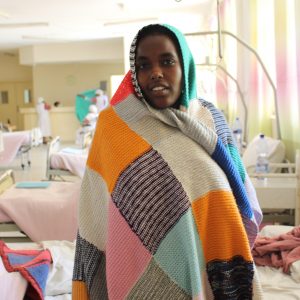
Thanks to the holistic approach of the Hamlin Model of Care, Fatuma was able to recover from fistula and gain a new start in her life. Fatuma’s treatment was provided completely free of charge, thanks to our generous supporters.
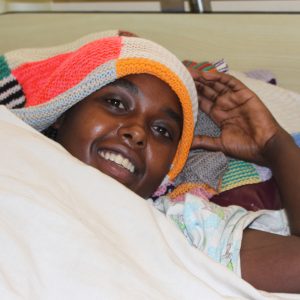
Click here to learn more about how you can help treat more women like Fatuma.